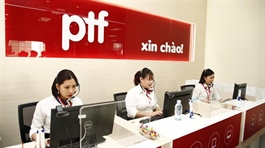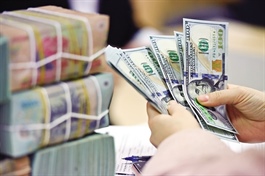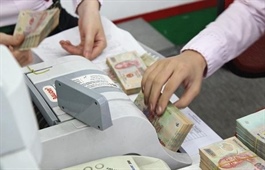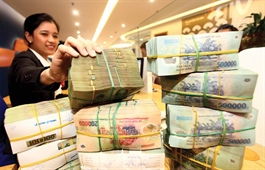Breakthrough reforms needed to develop Ho Chi Minh City into int’l financial center
Breakthrough reforms needed to develop Ho Chi Minh City into int’l financial center
Despite the establishment of a steering committee for the development of an international financial center in Ho Chi Minh City, reforms must be made if the project is to be a success.

Vietnam should prepare both hard and soft infrastructure to develop a comprehensive international financial center in Ho Chi Minh City. Photo: Quang Dinh / Tuoi Tre |
According to Tran Quoc Hung, senior fellow at American think tank the Atlantic Council and former executive managing director of the Institute of International Finance, the transformation of Ho Chi Minh City into an international financial center will create a bridge allowing households and enterprises to make direct and indirect investments through banks; mutual, pension, and insurance funds; and securities markets.
In order to make this transformation a successful reality, Ho Chi Minh City must create a financial transaction ecosystem complete with primary and secondary capital and stock markets, along with diverse financial tools, auxiliary services, such as banks, investment funds, accounting, auditing, investment consulting, and tax services.
Hung also noted the importance of developing networking and digital technology services and infrastructure, including houses, schools, hospitals, and cultural and entertainment services which might serve to attract top financial talent to the city.
He mentioned that the city must prioritize developing an effective legal system and trade and finance regulations.
The market-cap-to-GDP ratio of the Ho Chi Minh Stock Exchange (HoSE) currently sits at 70 percent, lower than that in Thailand (104.2 percent) and Malaysia (93.7 percent).
Vietnam’s ratio of corporate bond market value to GDP is even lower, at just 22 percent. That ratio is 59 percent in Thailand and 75 percent in Malaysia.
Once the city is transformed into an international financial center, mechanisms to resolve trade disputes with foreign partners transparently and fairly are needed to intensify the effectiveness of the center and lure continued foreign investment.
Vietnam must also mobilize various capital resources to invest in advanced technology, green technology, and digital economy, which will boost the country’s sustainable development in the future.
Such reforms will increase the number of financial transactions which take place in the city and contribute to increasing its gross regional domestic product.
Aside from Ho Chi Minh City, the country as a whole should develop financial centers to establish a more balanced financial intermediary system that is independent of the current banking system.
Vietnam’s ratio of bank assets to GDP is some 200 percent, much higher than Thailand’s 152 percent, Malaysia’s 66.3 percent, and Indonesia’s 43.3 percent.
Lessons from Malaysia
Hung recommended that Vietnam learn from Malaysia, which has focused on developing its capital market over the past two decades and boasts a relatively balanced financial intermediary system with the ratio of bank assets, stock market cap, and corporate bond market value to GDP being 66.3, 93.7, and 75 percent, respectively.
Malaysia’s corporate bond market is the biggest in Southeast Asia. The stock exchange in Kuala Lumpur currently boasts 995 businesses, including 10 foreign firms, while HoSE boasts a mere 402 enterprises, none of which are foreign.
The financial intermediary system helped Malaysia achieve a GDP per capita of US$11,947 in 2024, well above Vietnam’s $4,659.
The capital market needs consistent development and a close connection with other units, together with infrastructure and services. As a result, capital market development will take time.
In an effort to develop a comprehensive international financial center in Ho Chi Minh City, the national government should build a financial market which meets international standards.
Hung noted that Vietnam’s plan to reduce its apparatus will help with the development of a comprehensive international financial center in Ho Chi Minh City.
In November last year, the Politburo gave the green light for a project to develop a comprehensive international financial hub in Ho Chi Minh City.
Chairman of the Ho Chi Minh City administration Phan Van Mai earlier stated that the city’s international financial center would be established by 2030.
The city plans to continue developing infrastructure, especially in District 1 and the Thu Thiem area in Thu Duc City, as well as train and attract high-quality human resources to meet the financial hub’s requirements, according to Nguoi Lao Dong (Laborer) newspaper.




























